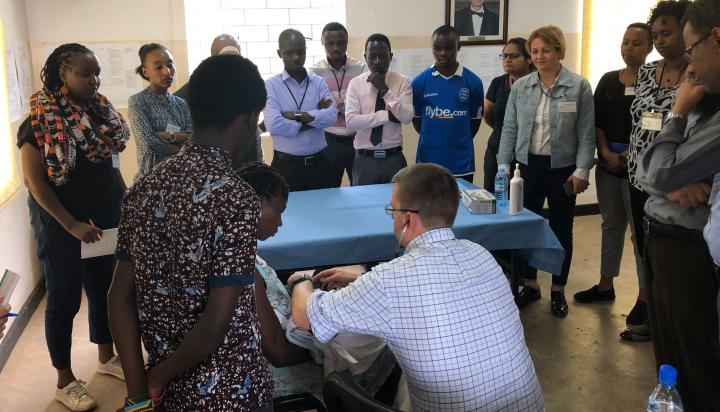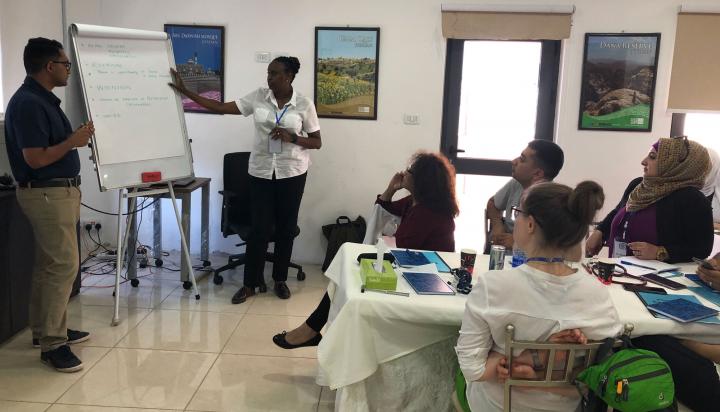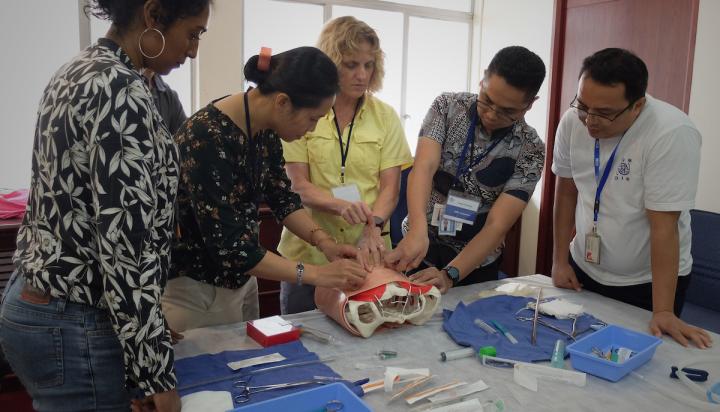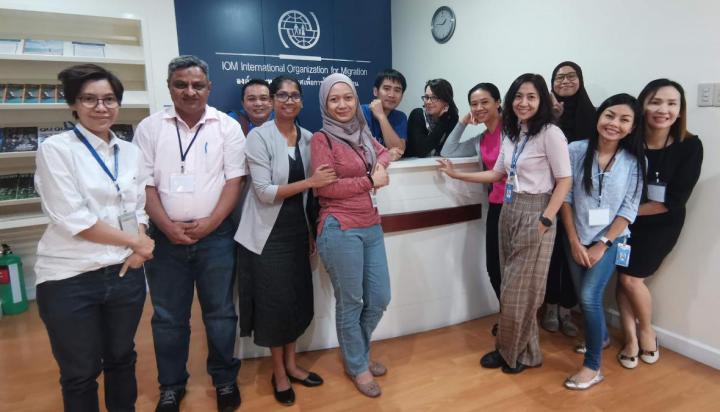UN Migration Agency (IOM) Project
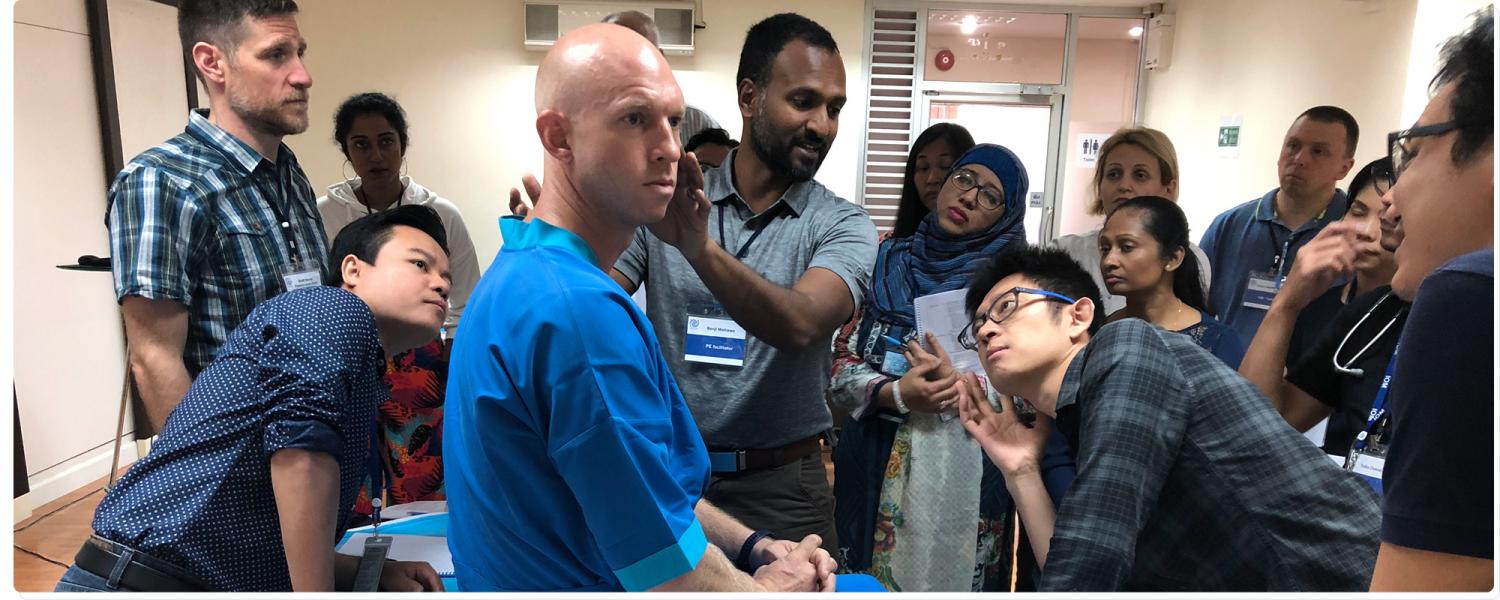
Building the capacity of health care providers abroad and in the US to address the medical needs of migrating refugees to ensure proper health screenings, safe arrival, and a more successful community integration.
We partner with the United Nations Migration Agency (International Organization for Migration, IOM) to build the capacity of IOM and US-based refugee clinicians to improve the continuum of care delivered to refugees. IOM is the leading intergovernmental organization in the field of migration. Around the world, IOM physicians, nurses, laboratorians, and other health care professionals are relied upon to screen and assess US-bound refugees.
While many refugees are young and healthy, some will have serious health conditions that can complicate their resettlement. Better care improves health, reduces costs for welcoming countries, decreases risk of transmissible infections, and improves refugee integration into local communities.
UN Migration Agency Project Spotlight
Since 2012, the University of Minnesota has partnered with the United Nations Migration Agency (IOM) to build the agency’s capacity to perform health screening and health assessments for U.S.-bound refugees.
The IOM is the leading international organization committed to the principle that humane and orderly migration benefits migrants and society. The University’s partnership with the IOM, currently led by the Center for Global Health and Social Responsibility (CGHSR), has focused primarily on training programs, exchanges and providing subject matter expertise.
Read "Training Health Providers Abroad to Meet the Unique Needs of U.S.-bound Refugees"
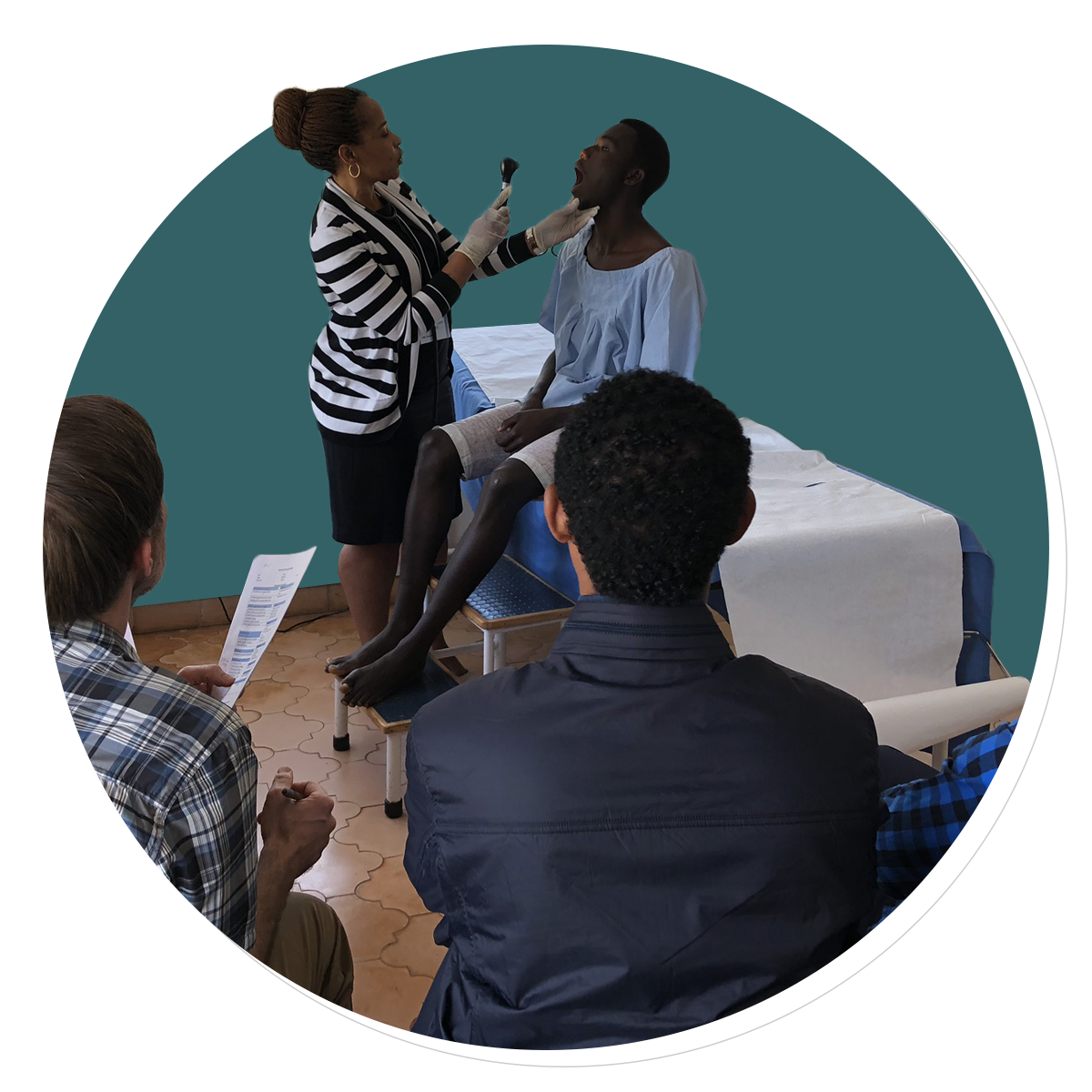
Our Approach
Our work is accomplished through an iterative, collaborative process that leverages the expertise of partners at IOM and UMN, in addition to experts at the CDC and other subject matter experts. This process generates mutual ownership, respect and understanding.
- International Trainings: UMN and Minnesota-based partners deliver hands-on clinical training in Asia, Africa, the Middle East, and Europe on a wide variety of topics. Topics have included physical examination, patient communication, working with interpreters, giving and receiving collegial feedback, and a wide range of clinical speciality topics. UMN faculty also serve as subject matter experts at refugee health conferences on behalf of IOM.
- Exchanges and Networking: UMN hosts IOM staff to learn firsthand about domestic resettlement through visits to the University, the Minnesota Department of Health, and county public health programs. Visitors also shadow domestic refugee clinics and meet with former refugees through community-based organizations. These face-to-face meetings allow for exchange of knowledge and best practices and creation of networks.
- Co-Management of Refugees with Complex Conditions: We provide support in diagnosing, managing, or planning travel for refugees with complex medical needs. UMN and partners also contribute to Standard Operating Procedures (SOPs) for IOM’s clinicians to guide the care of specific conditions before and during US resettlement. SOPs topics include sickle cell disease management; scabies detection, management, and control; and diagnosis and management of splenomegaly.
- Online Training: UMN provides customized online educational materials for IOM clinicians through a portal developed specifically for IOM, with the goal of supplementing and reinforcing in-person or hands-on training. These professional development and “train the trainer” resources are on topics such as an overview of global health, working with interpreters, and short courses specifically for refugee providers and nurses.
While IOM’s needs drive activities, there are also benefits to US health professionals and systems that provide care to refugees. The networking and bilateral learning experiences are invaluable for all health care professionals and systems along the resettlement continuum.
Project Partners
This project is accomplished through partnerships with Minnesota-based experts and individuals, including UMN faculty, local health providers, the Minnesota Department of Health Refugee and International Health Program, and HealthPartners Center for International Health.
Minnesota-based partners and their international counterparts have a unique opportunity to build professional relationships. This connection between those that prepare refugees for resettlement, and those that receive refugees in their new home-countries leads to an expanded capacity to provide effective care at every step of the refugee resettlement process.
UN Migration Agency
The United Nations Migration Agency, known as the International Organization for Migration or IOM, provides care for US-bound refugees prior to their arrival in the United States.
